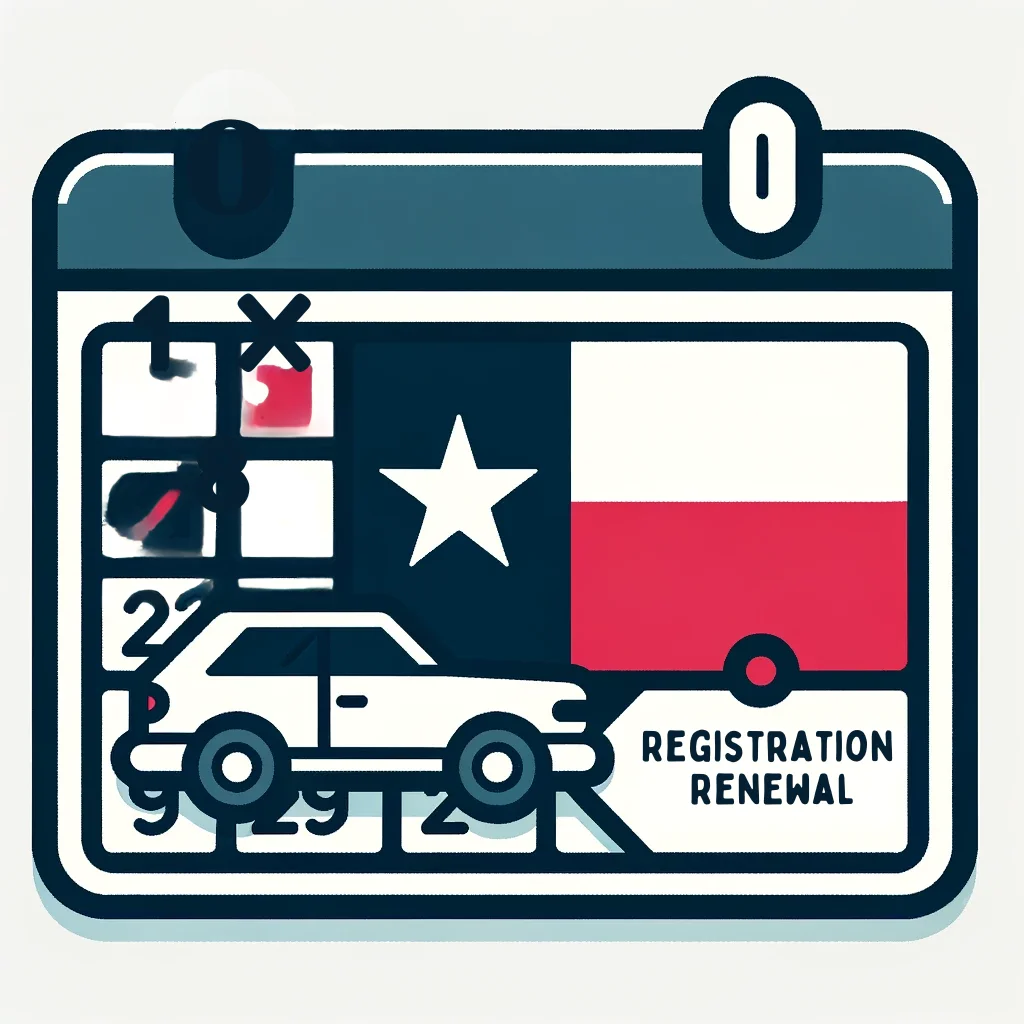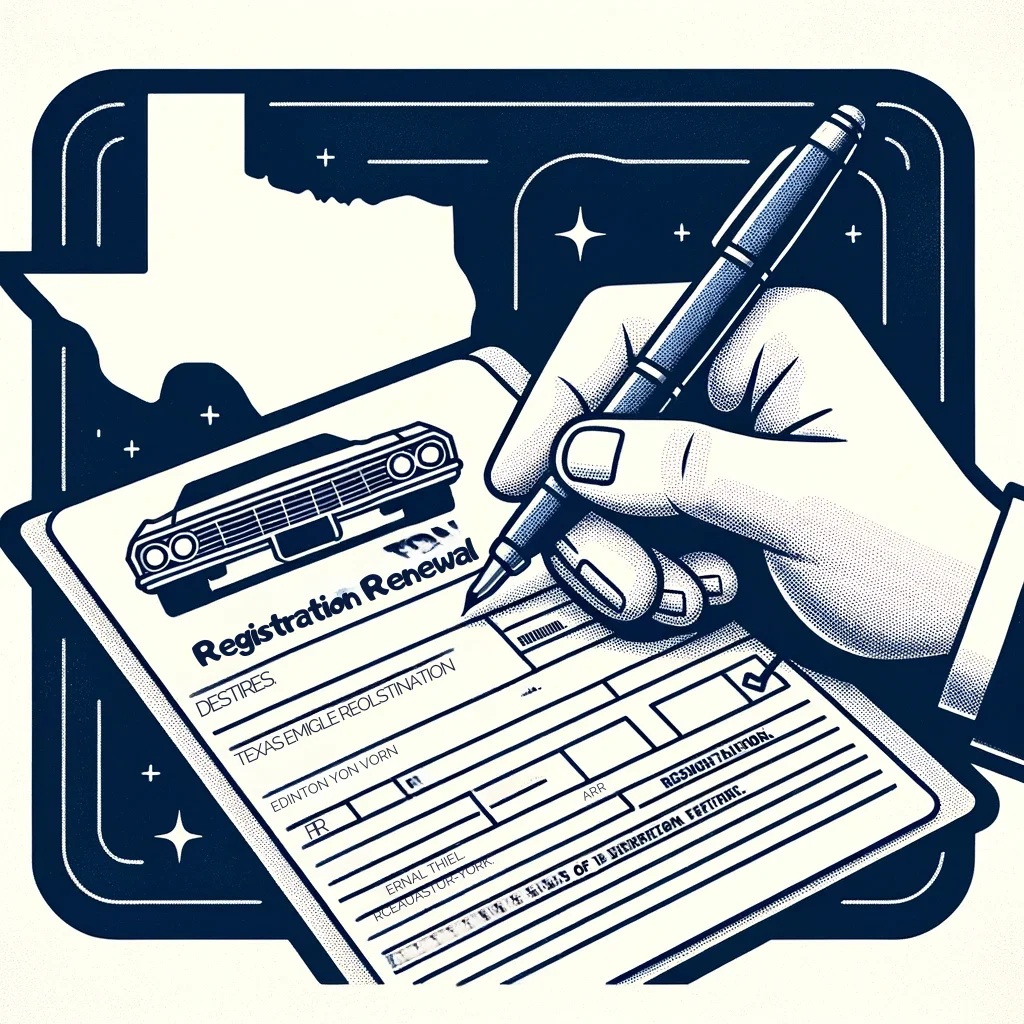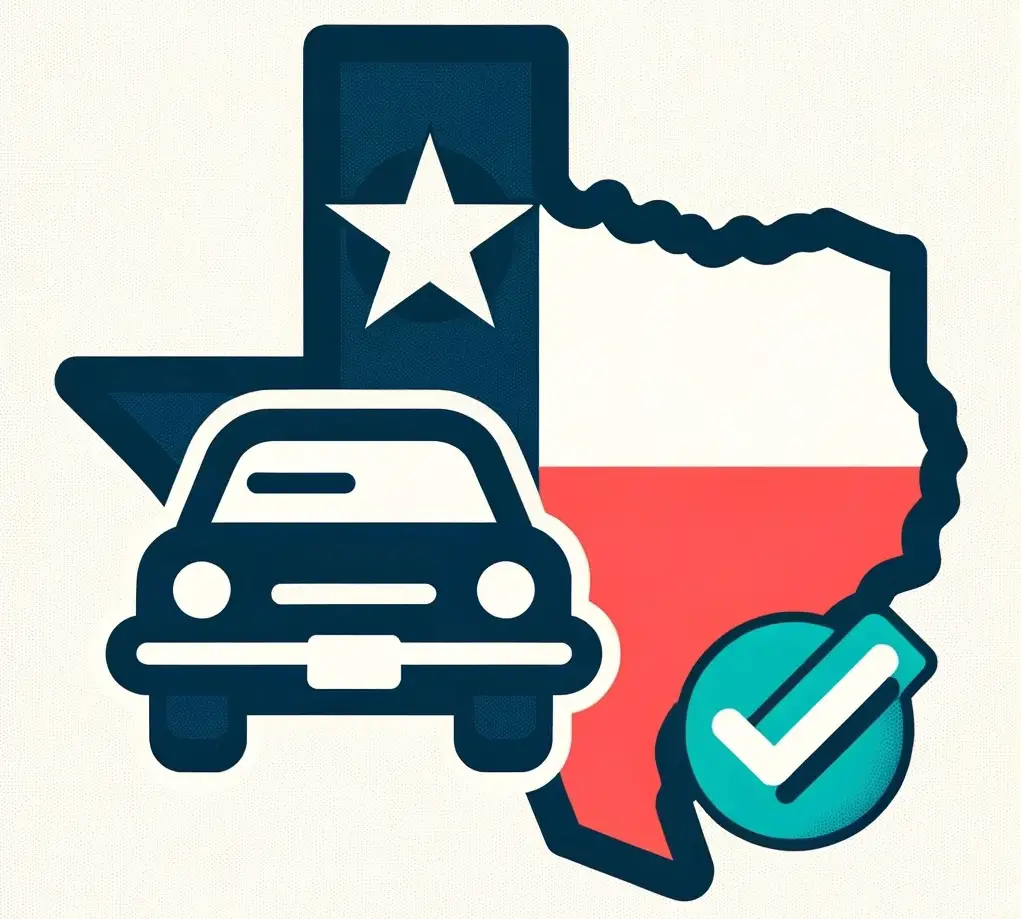Who Needs to Renew?
In Texas, vehicle registration renewal is required for various types of vehicles. This includes cars, trucks, motorcycles, trailers, and recreational vehicles (RVs). Whether you own a personal vehicle or a commercial one, it is important to understand the renewal process and who is eligible.
All vehicle owners in Texas are required to renew their registration annually. This applies to both residents and non-residents who have vehicles registered in the state. If you have recently moved to Texas, you must transfer your out-of-state registration within 30 days and then renew it accordingly.
Additionally, it is important to note that certain exemptions exist for specific types of vehicles. For example, farm vehicles used exclusively for agricultural purposes may be exempt from registration renewal. Similarly, vehicles owned by active-duty military personnel may have different renewal requirements.
To renew your vehicle registration in Texas, you can do so online, by mail, or in person at your local county tax office. The renewal process typically involves providing proof of insurance, paying the required fees, and obtaining a new registration sticker.
By understanding who needs to renew their vehicle registration in Texas, you can ensure that you comply with the state’s regulations and avoid any penalties or fines. Stay informed about the specific requirements for your vehicle type and renewal eligibility to keep your registration up to date.
When to Renew?
Renewing your vehicle registration in Texas requires understanding the frequency of renewal, deadlines, and grace periods.
In Texas, vehicle registration renewal is typically required annually. This means that you must renew your registration every year to ensure that your vehicle remains legally registered. However, it’s important to note that certain types of vehicles may have different renewal periods. For example, commercial vehicles may require more frequent renewal, while some recreational vehicles may have biennial renewal requirements.
To avoid penalties or fines, it’s crucial to be aware of the specific deadline for renewing your vehicle registration. The deadline is typically based on the month in which your registration expires. The Texas Department of Motor Vehicles provides a convenient online tool where you can check the expiration date of your registration and find out when you need to renew.
In addition to the deadline, Texas also provides a grace period for renewing your vehicle registration. This grace period allows you to renew your registration within a certain timeframe after the expiration date without facing penalties. However, it’s important to note that driving with an expired registration during the grace period may still result in a citation.
By understanding the frequency of renewal, deadlines, and grace periods for vehicle registration in Texas, you can ensure that you stay compliant with the state’s requirements and avoid any unnecessary penalties. Stay informed about the specific renewal period for your vehicle type and mark your calendar to ensure timely renewal.
Pre-requisites for Renewal
To successfully renew your vehicle registration in Texas, there are a few pre-requisites that you need to fulfill. These pre-requisites ensure that you have all the necessary documents and information ready for a smooth renewal process.
Firstly, you will need to have your current vehicle registration card. This card contains important details such as your vehicle’s make, model, and identification number. It is essential to have this card on hand as it serves as proof of your vehicle’s registration.
Secondly, you will need to provide proof of valid insurance coverage for your vehicle. Texas law requires all registered vehicles to have minimum liability insurance coverage. You will need to present a valid insurance card or other proof of insurance when renewing your registration.
Additionally, you will need to clear any outstanding fines or fees associated with your vehicle. This includes unpaid tolls, parking tickets, or any other violations. It is important to settle these before renewing your registration to avoid any complications.
Lastly, you will need to have a valid form of identification, such as a driver’s license or state-issued ID card. This is necessary to verify your identity and ensure that you are the rightful owner of the vehicle.
By ensuring that you have these pre-requisites in order, you can streamline the vehicle registration renewal process and avoid any delays or issues. Gather all the necessary documents and information beforehand to make the renewal process quick and hassle-free.
How to Renew Your Texas Vehicle Registration
Renewing your Texas vehicle registration is a simple process that can be done online, in-person, or by mail. Each method has its own advantages and requirements, so you can choose the one that best suits your needs.
A. Online
Renewing your vehicle registration online is a convenient option that allows you to complete the process from the comfort of your own home. To get started, visit the Texas Department of Motor Vehicles (DMV) website and follow these steps:
1. Step-by-step guide on using the Texas Department of Motor Vehicles website: The website provides a user-friendly interface that guides you through the renewal process. You will need to enter your vehicle information, insurance details, and payment information. Make sure to review all the information before submitting your renewal.
2. Accepted payment methods: The Texas DMV website accepts various payment methods, including credit/debit cards and electronic checks. Choose the option that is most convenient for you.
3. Receiving the renewal sticker and documents: Once you have completed the online renewal process and made the payment, you will receive a confirmation email. The renewal sticker and updated registration documents will be mailed to the address on file within a few business days.
B. In-Person
If you prefer to renew your vehicle registration in-person, there are several locations where you can do so, including county tax offices and participating grocery stores. Here’s what you need to know:
- Locations: County tax offices and participating grocery stores have designated areas where you can renew your vehicle registration. Check the Texas DMV website for the nearest location to you.
- Documents to bring: When renewing your registration in-person, you will need to bring your current vehicle registration card, proof of insurance, and a valid form of identification. It’s also a good idea to bring any necessary payment methods, such as cash or a credit/debit card.
- Process and waiting times: The renewal process in-person is relatively quick, but waiting times may vary depending on the location and time of day. Be prepared to wait in line and allow for enough time to complete the process.
C. By Mail
Renewing your vehicle registration by mail is another option if you prefer not to visit a physical location. Here’s what you need to do:
- Address details: To renew your registration by mail, you will need to send the necessary documents to the address provided on the renewal notice or the Texas DMV website. Make sure to include all the required information and double-check the address before sending.
- Documents to include: When renewing by mail, you will need to include your current vehicle registration card, proof of insurance, and a check or money order for the renewal fee. It’s important to follow the instructions provided and include all the necessary documents to avoid any delays.
- Expected processing time: The processing time for mail-in renewals may take longer compared to online or in-person methods. It’s recommended to send your renewal well in advance to ensure that you receive your updated registration documents before the expiration date.
Choose the method that works best for you and ensure a smooth and timely renewal of your Texas vehicle registration. Whether you choose to renew online, in-person, or by mail, make sure to gather all the required documents and follow the instructions provided to avoid any complications.
Cost of Renewal
When renewing your Texas vehicle registration, it’s important to be aware of the cost involved. The cost of renewal is determined based on various factors, including the type of vehicle, its weight, and the county in which you reside. Here’s a breakdown of the fees you can expect:
- Vehicle Type: The fees for renewing different types of vehicles may vary. For example, the renewal fee for a passenger car will be different from that of a motorcycle or a commercial vehicle. Make sure to check the Texas Department of Motor Vehicles (DMV) website or contact your local county tax office for specific fee information based on your vehicle type.
- Vehicle Weight: In addition to the vehicle type, the weight of your vehicle can also impact the renewal fee. Heavier vehicles may have higher fees compared to lighter ones. This is because heavier vehicles tend to cause more wear and tear on the roads and require additional maintenance.
- County Variations: The renewal fees can also vary from county to county. Some counties may have additional fees or surcharges, so it’s important to check with your local county tax office for the specific fees applicable in your area.
In some cases, there may be potential discounts or exemptions available for certain individuals. For example, seniors or veterans may be eligible for discounted renewal fees. It’s worth exploring these options and checking if you qualify for any exemptions.
When it comes to payment methods, the Texas DMV website accepts various forms of payment, including credit/debit cards and electronic checks. Make sure to choose the payment method that is most convenient for you.
By understanding the breakdown of fees, potential discounts or exemptions, and accepted payment methods, you can be better prepared for the cost of renewing your Texas vehicle registration.
What to Do if You Miss the Renewal Deadline?
If you miss the renewal deadline for your Texas vehicle registration, there are a few important steps you should take to rectify the situation. It’s crucial to address the issue promptly to avoid potential penalties and fines.
Firstly, if your registration has expired, you should refrain from driving the vehicle until you have completed the renewal process. Driving with an expired registration can result in a traffic citation and further complications.
To renew your registration after the deadline, you will need to visit your local county tax office or utilize the online services provided by the Texas Department of Motor Vehicles (DMV). Keep in mind that there may be additional fees or penalties associated with late renewals.
When renewing your registration late, you may be required to provide proof of insurance and pass a vehicle inspection, depending on the circumstances. It’s essential to gather all the necessary documents and meet any additional requirements to complete the renewal successfully.
To avoid future issues, it’s advisable to set reminders or utilize online services that offer renewal notifications. This way, you can stay on top of your registration renewal and avoid missing the deadline in the future.
By following these steps and addressing the situation promptly, you can ensure that your Texas vehicle registration is renewed without incurring unnecessary penalties or fines.
Special Cases and Exemptions
In addition to the standard vehicle registration renewal process, there are certain special cases and exemptions to be aware of. These situations may involve vehicles that do not require registration, temporary registrations, and considerations for out-of-state and military personnel.
Some vehicles may be exempt from the registration requirement altogether. This includes certain types of vehicles such as off-highway vehicles, farm vehicles, and trailers weighing less than 4,000 pounds. It’s important to check with the Texas Department of Motor Vehicles (DMV) or your local county tax office to determine if your vehicle falls under any of these exemptions.
For temporary registrations, there are specific guidelines to follow. Temporary registrations are typically issued for vehicles that are not intended for regular use on public roads, such as vehicles used for parades, exhibitions, or special events. These registrations are valid for a limited period of time and may require additional documentation or fees.
If you are an out-of-state resident or a member of the military stationed in Texas, there are considerations for your vehicle registration. Out-of-state residents may be required to register their vehicles in Texas if they establish residency in the state. Military personnel may be eligible for certain exemptions or extensions, depending on their circumstances. It’s important to consult the Texas DMV or your local county tax office for specific requirements and procedures.
Understanding these special cases and exemptions will help ensure that you are aware of any alternative registration options that may apply to your situation. By staying informed and following the appropriate guidelines, you can navigate the vehicle registration process in Texas with ease.
Frequently Asked Questions (FAQs)
Addressing common queries like lost stickers, changes in vehicle ownership, etc.
When it comes to renewing your Texas vehicle registration, you may have some questions or concerns. In this section, we will address some of the most frequently asked questions to help guide you through the process.
1. What should I do if I lost my registration sticker?
If you have lost your registration sticker, you will need to request a replacement from the Texas Department of Motor Vehicles (DMV) or your local county tax office. You may be required to provide certain documentation, such as proof of vehicle ownership and identification, to obtain a replacement sticker.
2. What should I do if I need to update my vehicle ownership information?
If there has been a change in vehicle ownership, such as buying or selling a vehicle, it is important to update the registration information. You will need to notify the Texas DMV or your local county tax office of the change and provide the necessary documentation, such as a bill of sale or transfer of title. Failure to update the ownership information may result in penalties or complications during the renewal process.
3. Can I renew my vehicle registration online?
Yes, in most cases, you can renew your Texas vehicle registration online. The Texas DMV provides an online portal where you can easily renew your registration by entering the required information and paying the renewal fees. However, certain situations may require you to renew in person, such as if you have outstanding fines or need to provide additional documentation.
4. What if I have moved to a different county in Texas?
If you have moved to a different county within Texas, you will need to update your vehicle registration with your new county tax office. You may be required to provide proof of residency, such as a utility bill or lease agreement, along with the necessary documentation for renewal.
By addressing these common queries, we hope to provide clarity and guidance for your Texas vehicle registration renewal process. Remember to consult the Texas DMV or your local county tax office for any specific questions or concerns you may have.
Tips and Recommendations
When it comes to renewing your Texas vehicle registration, there are a few tips and recommendations that can help make the process smoother and more convenient.
One of the best tips is to choose the right time to renew your registration. To avoid long lines at the local county tax office or heavy website traffic if renewing online, it’s advisable to plan your renewal during off-peak times. Typically, weekdays and mid-month tend to be less busy, so consider scheduling your renewal during these times to save time and avoid unnecessary delays.
Another important recommendation is to keep track of your renewal dates. Marking the expiration date on your calendar or setting a reminder on your phone can help ensure that you don’t miss the deadline. By renewing your registration on time, you can avoid late fees and penalties.
Once you have successfully renewed your registration, it’s crucial to keep the renewed documents in your vehicle. This includes the registration sticker and the updated registration card. Law enforcement officers may ask for these documents during routine traffic stops, and having them readily available can help avoid any complications or citations.
By following these tips and recommendations, you can streamline the Texas vehicle registration renewal process and stay compliant with the state’s requirements. Remember, staying proactive and organized can save you time, money, and unnecessary stress.
Conclusion
Renewing your Texas vehicle registration is a necessary process that ensures you remain compliant with state regulations. By following the tips and recommendations mentioned earlier, you can make the renewal process smoother and more convenient.
Choosing the right time to renew your registration can save you time and avoid unnecessary delays. Planning your renewal during off-peak times, such as weekdays and mid-month, can help you avoid long lines at the county tax office or heavy website traffic if renewing online.
Keeping track of your renewal dates is crucial to avoid late fees and penalties. Marking the expiration date on your calendar or setting a reminder on your phone can help you stay on top of your renewal requirements.
Once you have successfully renewed your registration, remember to keep the renewed documents in your vehicle. This includes the registration sticker and the updated registration card. Having these documents readily available can help you avoid complications or citations during routine traffic stops.
By staying proactive and organized throughout the renewal process, you can save time, money, and unnecessary stress. So, make sure to renew your Texas vehicle registration on time and stay compliant with the state’s requirements.
References and Resources
To ensure a smooth and hassle-free Texas vehicle registration renewal process, it’s important to have access to the right resources and information. Here is a list of official websites, helplines, and relevant documentation that can provide you with further guidance and assistance.
- Texas Department of Motor Vehicles (DMV) Website: The official website of the Texas DMV is a valuable resource for all your vehicle registration needs. You can find detailed information about the renewal process, required documents, and frequently asked questions. Visit their website at www.txdmv.gov.
- County Tax Office: Each county in Texas has its own tax office responsible for vehicle registration. You can visit your local county tax office’s website for specific information about office hours, locations, and online renewal options.
- Texas DMV Helpline: If you have any questions or need assistance with your vehicle registration renewal, you can contact the Texas DMV helpline at 1-888-368-4689. Their knowledgeable staff can provide you with guidance and address any concerns you may have.
- Texas Vehicle Registration Renewal Form: The Texas DMV provides an official renewal form that you can download and fill out in advance. This form includes important information such as vehicle details, insurance information, and payment options. Having this form completed beforehand can save you time during the renewal process.
- Texas Vehicle Registration Fee Calculator: To estimate the cost of your vehicle registration renewal, you can use the Texas DMV’s online fee calculator. This tool takes into account factors such as vehicle type, weight, and county of registration to provide you with an accurate fee estimate.
By utilizing these resources, you can ensure a successful and efficient Texas vehicle registration renewal. Stay informed, be prepared, and complete your renewal on time to avoid any penalties or complications.




